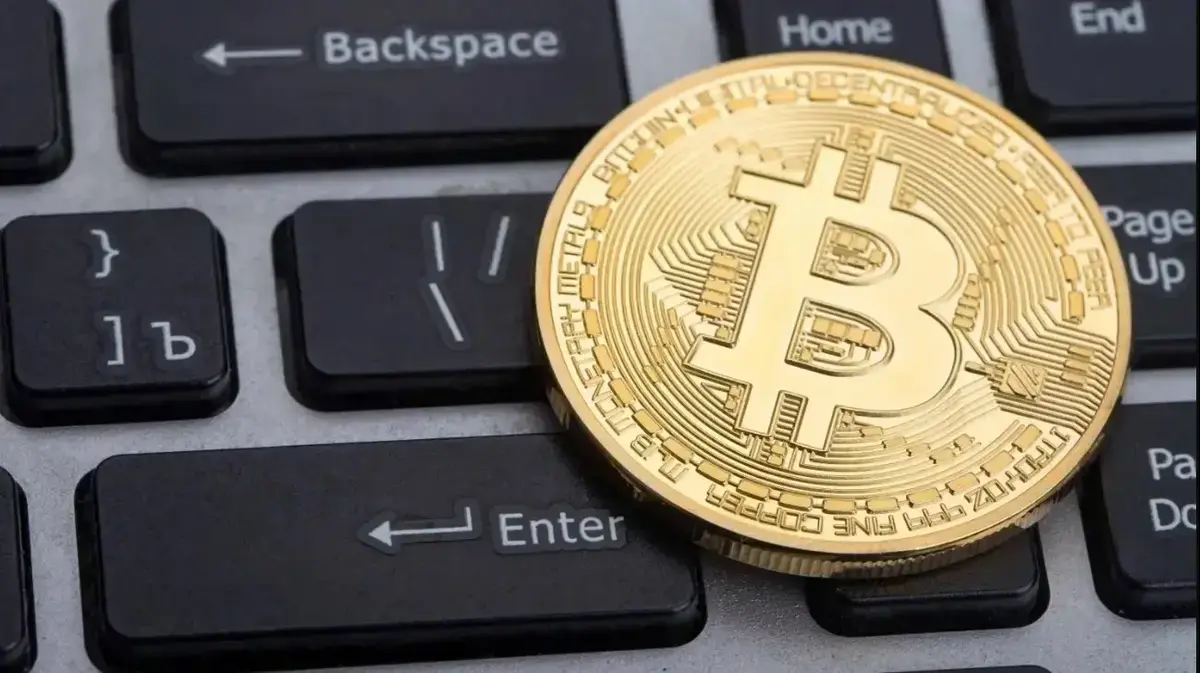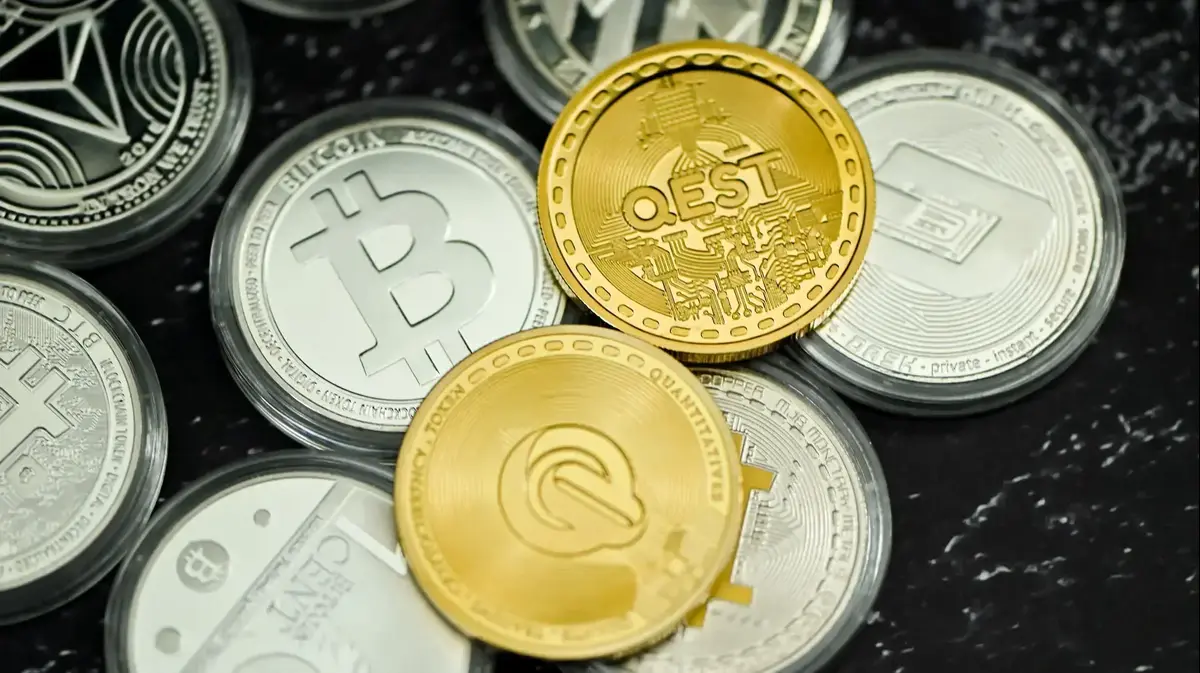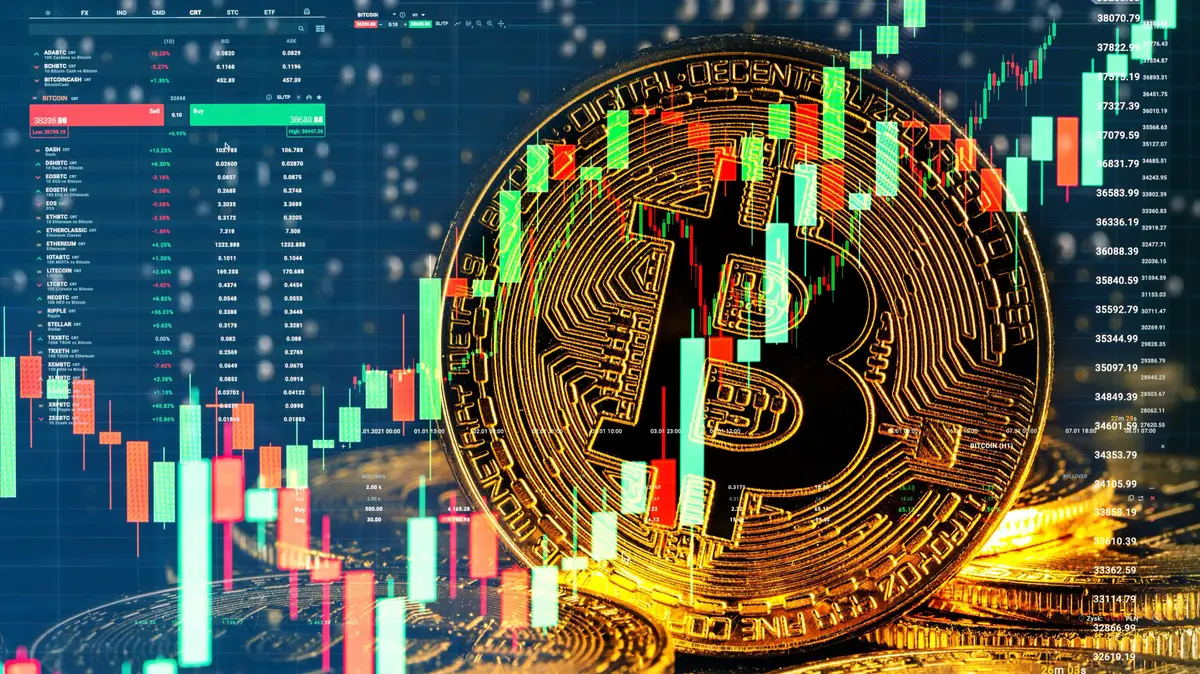Enlarge image
New normal?
The new law obliges merchants across the country to also accept digital money
Photo:
STANLEY ESTRADA / AFP
When Roman Martínez heard that El Salvador would be the first country in the world to introduce Bitcoin as an official means of payment, he "cried with joy," says the 30-year-old: "For me, a dream has come true." First he called his mother , then his friends with whom he runs the “Bitcoin Beach” initiative in his home village of El Zonte.
The young Salvadorans have been trying to get the around 3,000 villagers interested in crypto currencies since 2019.
Martínez is convinced that poorer people can also benefit from the virtual currency.
"Bitcoin is there for everyone," he says euphorically.
El Zonte has been an insider tip for surfers so far, many streets are not paved, the huts look shabby in places, and there is no real sewage system.
This is what El Salvador's first Bitcoin machine stands for: Cash can be exchanged for crypto currency, and users save the credit in a virtual wallet on their mobile phones.
It is then transmitted via an app to the cellphone of the owner of cafés, restaurants, small shops or street vendors who, in addition to the main currency, US dollars, also accept the digital payment option.
Now the experiment could become a model for the whole country, which was previously known primarily for gang violence, poverty and emigration: Recently, President Nayib Bukele announced his plans to turn El Salvador into a Bitcoin hub - also inspired by »Bitcoin Beach «.
Bukele, the 39-year-old hipster president who practices influencer-style politics, is currently presenting himself on Twitter with laser eyes - the classic meme of crypto fans.
He advertises foreign entrepreneurs and disseminates new ideas almost every day - at the moment he is having the state electricity company check whether volcanic energy can be used for "mining".
Cryptocurrency is not controlled by a central bank, but created by a decentralized computer process - the computer centers often devour vast amounts of electricity.
Last week, El Salvador's parliament passed the Bitcoin law, which establishes the cryptocurrency as a payment option alongside the US dollar: In future, retailers and service providers will also have to accept Bitcoin, and citizens will soon be able to pay taxes digitally.
According to Bukele, his project will bring "financial inclusion, investment, tourism, innovation and economic development" - a kind of lucky bag for the 6.5 million inhabitant country.
Other states are eagerly following the advance of the small Central American country.
Like El Salvador, many developing countries are currently experimenting with alternative payment systems such as mobile phone apps that are intended to reach citizens without a bank account.
Or they try with
Tech industries attract foreign investors.
But how realistic is Bukele's dream of the Bitcoin nation?
So far, Bitcoin has mainly been considered an object of speculation, the price fluctuations resemble a roller coaster ride. In 2010, a programmer was the first to pay for an object with Bitcoin, at that time two pizzas cost 10,000 Bitcoins - at today's exchange rate, more than 319 million euros.
What exactly El Salvador's future system will look like is still unclear. Head of state Bukele is known for his short-term political announcements, which he often makes on Twitter. At a press conference held by the Central American Bank for Economic Integration BCIE on Monday, many questions remained unanswered. A team of experts is currently being put together to look at global best practice examples, it said. Security aspects would also have to be checked. Experts warn that the cryptocurrency can be misused for money laundering because it evades control mechanisms.
But there are many indications that the system could work in a similar way to "Bitcoin Beach".
The government wants to develop an official virtual wallet, and apps from other providers should also be allowed.
Bukele is currently being advised by the founder of the payment service provider Zap, who enables transfers via the so-called Lightning network - as in El Zonte.
Lightning networks are based on a Bitcoin blockchain, but enable faster transfers with hardly any transaction costs - so transferring smaller amounts is also worthwhile.
In El Zonte, the providers give prices for pupusas, cornmeal patties or surf classes in US dollars, the users see the dollar value that is to be transferred in their app, and the current bitcoin value is displayed next to it.
"The Bitcoin blockchain thus functions as a means of transport to transport amounts from A to B," says hacker and IT security consultant Pavol Lupták.
Users wouldn't have to be tech experts to make a referral.
Roman Martínez and his friends from El Zonte are also not
“
tech bros
”
who studied at elite universities or taught themselves to hack.
You have been running social projects for around 13 years, teaching children how to surf and English, and want to encourage them to start a business instead of emigrating.
Two thirds of the approximately 6.5 million inhabitants of El Salvador work in the informal sector, and many lost their jobs during the pandemic. Thousands of people emigrate every year because they see no opportunities and have to flee from poverty, violence or the consequences of climate change. More than 1.5 million Salvadorans live abroad. According to the World Bank's Global Findex database, so far only 30 percent of citizens have access to a bank account - even less than in Guatemala and Honduras, where the rate is around 45 percent.
Hardly anyone in El Zonte has an account either. Martínez found out about Bitcoin from an American who came to the town and helped them develop the digital system. An anonymous donor financed the project with a Bitcoin donation. Scholarships for young people, wages for community services, and teachers have been paid digitally since then. During the lockdown, the initiative sent aid to families - and more and more stores joined the Bitcoin economy. "This gives people access to the financial system," says Martínez.
But there are hurdles: According to reports, some saleswomen have cell phones failing, they do not have enough mobile data or the internet connection is too shaky for the app. As a study shows, internet coverage in rural areas in El Salvador is poor - more than 90 percent of these households would not have access to the internet. Roman Martínez considers the infrastructure, but also a lack of understanding of technology, to be the greatest obstacles on the way to Bitcoin land - but if the state invested in the infrastructure and the government and tech experts joined forces, it would only be »one Question of time".
There is also a lot of potential for crypto apps in the area of international transfers: The money that flows from migrants, especially from the USA to hundreds of thousands of households in El Salvador, makes up more than 20 percent of the gross domestic product. So far, according to the World Bank, an average of 6.5 percent brokerage fee has been incurred, with the Lightning app "Strike", which has recently also been available in El Salvador, the transfer costs do not even amount to a cent when shipping 10 dollars - the app must be linked to a bank account, however.
From a technical point of view, the nationwide spread of a digital payment system for El Salvador could be managed in a few years, believes IT expert Pavol Lupták.
Satellite internet has already brought internet to remote communities in Africa or Panama.
Nevertheless, he doubts that Bukele's plan will work.
Because he is sure that the US will stop the project.
Big US banks control the local financial market, El Salvador is currently applying to the International Monetary Fund (IMF) for new economic aid, which also influences the economic policy of its debtors.
The IMF recently warned about the risks of cryptocurrencies, and the World Bank has already refused to help El Salvador implement the Bitcoin plans.
Lupták also believes that the fact that El Salvador is actually turning into a Bitcoin hub and attracting many founders from abroad is an illusion: Bukele is running "a huge marketing campaign to win Bitcoin investors and attract entrepreneurs," he says.
"But I wouldn't want to live in El Salvador." The country has one of the highest murder rates in the world, it is dangerous, but also more expensive and less attractive from a tax point of view than other countries.
During the pandemic, Lupták founded a kind of travel agency for hackers and so far has helped around 50 crypto-entrepreneurs and digital nomads to settle in Latin America - they moved to Paraguay or Panama.
But even if the dream of the Bitcoin nation fails, there are winners: the one popular with millennials
President Bukele, whose increasingly autocratic style of government is attracting international criticism, has once again positioned himself as an innovator.
The vision from El Salvador also inspires other countries to think more about digital alternatives.
MPs from Paraguay and Panama have announced that they will be working out their own proposals for a Bitcoin law.
In many countries it will probably not be crypto solutions that will prevail for the time being, but less sensational payment systems.
In the corona crisis, developing countries have found new ways to distribute aid money in many places.
In El Salvador's neighboring country Guatemala, for example, recipients of social assistance received a number code by SMS with which they could withdraw money at ATMs without a card.
This contribution is part of the Global Society project
Expand areaWhat is the Global Society project?
Reporters from
Asia, Africa, Latin America and Europe
report under the title “Global Society”
- on injustices in a globalized world, socio-political challenges and sustainable development.
The reports, analyzes, photo series, videos and podcasts appear in the international section of SPIEGEL.
The project is long-term and will be supported for three years by the Bill & Melinda Gates Foundation (BMGF).
A detailed FAQ with questions and answers about the project can be found here.
AreaWhat does the funding look like in concrete terms?
The Bill & Melinda Gates Foundation (BMGF) is supporting the project for three years with a total of around 2.3 million euros.
Are the journalistic content independent of the foundation?
Yes.
The editorial content is created without the influence of the Gates Foundation.
Do other media have similar projects?
Yes.
Big European media like "The Guardian" and "El País" have set up similar sections on their news sites with "Global Development" and "Planeta Futuro" with the support of the Gates Foundation.
Have there already been similar projects at SPIEGEL?
In the past few years, SPIEGEL has already implemented two projects with the European Journalism Center (EJC) and the support of the Bill & Melinda Gates Foundation: the “Expedition ÜberMorgen” on global sustainability goals and the journalistic refugee project “The New Arrivals” as part of this several award-winning multimedia reports on the topics of migration and flight have been produced.
Where can I find all publications on global society?
The pieces can be found at SPIEGEL on the topic Global Society.









/cloudfront-eu-central-1.images.arcpublishing.com/prisa/QLZQABDBZ5HQNGMWYSXWPVJXMY.JPG)





